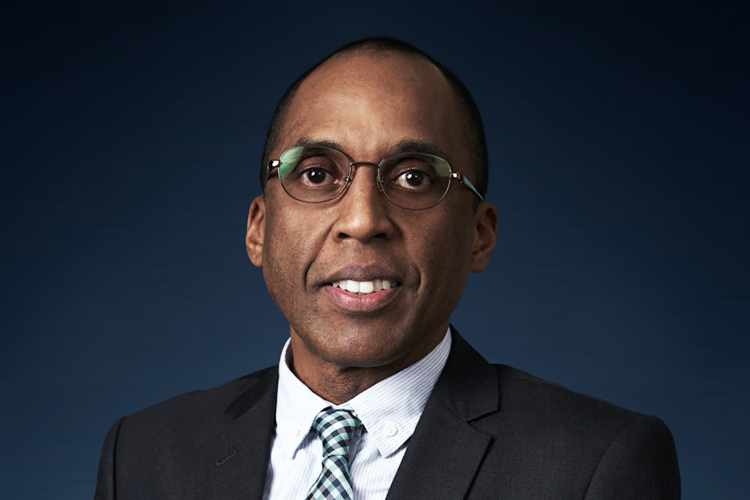Insurance-linked securities (ILS) managers will need to be conscious of their dealings with service providers, whilst taking steps to show their environmental, social and governance (ESG) processes at work, according to Ocorian Executive Director, Sherman Taylor.
 In a recent interview with Artemis, Taylor explained that, “You’ll do well not to see at least one reference to ESG somewhere in your working day – it’s everywhere. Investors are increasingly applying non-financial ESG factors as part of their analysis process to identify material risks and growth opportunities.”
In a recent interview with Artemis, Taylor explained that, “You’ll do well not to see at least one reference to ESG somewhere in your working day – it’s everywhere. Investors are increasingly applying non-financial ESG factors as part of their analysis process to identify material risks and growth opportunities.”
ESG has been one of the talking points within insurance and reinsurance-linked markets and among investors looking at the range of ILS assets for the past couple of years.
ILS, catastrophe bonds and other private reinsurance linked assets are seen as having inherent ESG qualities, as they are vehicles for provision of disaster risk and recovery financing, protecting society from the environmental impacts of weather and natural disaster events, and come from a marketplace with strong governance already in-place.
As noted by Taylor, ESG is now becoming a key facet of many investors’ ILS due diligence.
“Lloyd’s of London have even formed an ESG Advisory Group to guide the organisation and ensure accountability.
“This is particularly true in Europe, where the European Supervisory Authority (ESA) developed the EU’s Sustainable Finance Disclosure Regulations (SFDR) which became effective on 10th March, 2021.”
The SFDR imposes requirements on European fund managers, financial advisors and certain other EU firms to disclose information to potential investors related to their ESG frameworks.
It also promotes more sustainable investing practices and combats “greenwashing” by introducing transparency obligations, however it’s still uncertain what the full impact of the regulations will be on the ILS market, explained Taylor.
“The immediate impact will largely depend on the extent to which new ILS capital is sourced from the EU, with EU-based ILS funds likely to have to incorporate ESG processes within their investment activities.
“ILS fund managers from outside the EU who market their funds to investors within the EU will also need to be mindful of the SFDR’s disclosure requirements,” said Taylor.
He went on to explain that SFDR is the first significant attempt by a regulator to codify ESG disclosure requirements, adding that it’s reasonable to assume that regulators in other regions will follow suit.
“Responsible investing considerations already form a significant part of the decision-making process within global capital markets, and ILS funds are aligning their activities accordingly,” he said.
Taylor continued to explain that the ILS sector is well placed to accommodate this shift and has recognised the necessity of incorporating ESG into its activities in order to continue to access fresh capital.
He believes that other sectors have not been as proactive, as the industry has already seen the capital markets divest from companies that fail to meet investors’ ESG standards.
“This presents an opportunity for the ILS sector, as capital divested from companies with poor ESG frameworks can be redeployed into ILS funds exhibiting positive ESG ratings.
“A significant recent development is the announcement by Lloyds that, for the first time, it is setting targets for responsible underwriting and investment to help accelerate society’s transition away from fossil fuel dependency and towards renewable energy sources,” said Taylor.
Lloyd’s agents will no longer provide new insurance and reinsurance coverages or investments in these activities from the beginning of next year, and Taylor noted that the capital freed up by this could potentially find its way to the ILS market.
“However, the ILS sector brings together the insurance and capital markets and creates a complex securitised product with numerous variables and service providers involved across the value chain, which means it’s difficult to ensure uniform ESG standards are being met,” continued Taylor.
He also noted that companies in other sectors have suffered ESG rating downgrades because of the actions of their outsourced service providers and not because of their own direct action.
“The lesson that Ocorian, as a provider of administrative and fiduciary services to the ILS sector, can postulate is that in this new investment era, ILS funds must consider their ESG frameworks to be equally weighted with their balance sheet performance,” he concluded.
 View all of our Artemis Live video interviews and subscribe to our podcast.
View all of our Artemis Live video interviews and subscribe to our podcast.
All of our Artemis Live insurance-linked securities (ILS), catastrophe bonds and reinsurance video content and video interviews can be accessed online.
Our Artemis Live podcast can be subscribed to using the typical podcast services providers, including Apple, Google, Spotify and more.






























